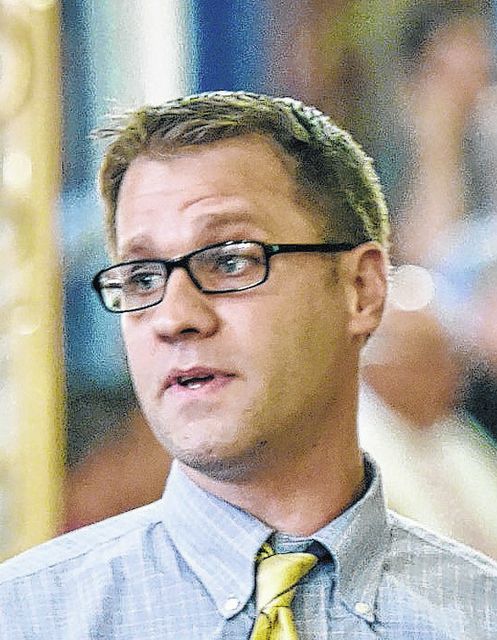Click here to subscribe today or Login.
WILKES-BARRE — An inability to reach the man who proposed private funding for Wilkes-Barre Area School District construction may be a bit of a mystery, but it’s not really relevant in the fight against a high school consolidation plan, Attorney Kimberly Borland said.
Borland has opposed the plan to close Meyers and Coughlin high schools and put grades 9-12 from both into a new building at the Coughlin site since the School Board approved the proposal at a June 10 meeting.
But he has said from the beginning his objections are about the process the school board used in arriving at the decision, not the decision itself.
Opposition to the plan sprang up in several forms, including a group seeking to save Meyers High School and people who argued the specific schools weren’t important as long as three neighborhood high schools remain in operation. Those groups coalesced in August into the non-profit, incorporated “Save Our Schools.” Borland and Borland law firm is letting the group use its offices when needed.
As opposition grew, Wilkes-Barre City Councilman George Brown raised eyebrows — and hopes — when he said private investors may be available to help fund renovation or construction in the district. Brown declined to name names, but as the buzz grew local businessman Bob Sypniewski emerged, first introducing himself to the public at the school board’s Aug. 10 meeting.
The board held Sypniewski’s comments to three minutes, as per board policy, but it was enough time to outline the basics: Private investors would put the money for any project up front, speeding up the financing process and take control of hiring contractors and architects. The district would pay the money back with interest over several decades, most likely 30 years.
Sypniewski gave more details to a group of residents the following night during a meeting arranged by Brown at Rodano’s Restaurant on Wilkes-Barre’s Public Square, still refusing to name investors.
But District Solicitor Ray Wendolowski eventually revealed at least some of the potential parties after an Aug. 13 teleconference: Municipal Acquisitions in Washington D.C., Bison Financial in St. Petersburg, Florida and The Shaw Group in Baltimore.
Sypniewski managed to arrange for a representative from Municipal Acquisitions to attend a school board informational meeting already scheduled for Aug. 17 for an update from the board’s design team, four area firms that have been advising the board.
Awaiting answers
Wendolowski said that meeting ended “with the ball in their court.”
State law neither explicitly bans or allows the type of arrangement proposed, and Wendolowski said he “asked them to get back to us with a legal framework” that would guarantee the district wouldn’t face legal repercussions.
On Monday Wendolowski said he hasn’t “heard a word” from Sypniewski or anyone else since.
Sypniewski had been expected to attend a public forum Sunday afternoon set up by SOS, and to give more details on the proposal. But he didn’t show up, and when several people in the crowd asked where the investors were, both Borland and Brown said Sypniewski has not returned calls for about a week.
Asked for more details Monday, Borland said, “I called him 10 days ago and he didn’t call back. On Saturday (Sypniewski) called George Brown and asked for Ruth’s cell phone number.” Ruth Borland is Kim Borland’s wife. They never connected.
But the private financing proposal isn’t really part of the goal for SOS, Borland said. “We were glad to provide a platform for him to present alternative funding,” he said. “To us it was interesting that there might be a different way to do it.”
Refined message
Sunday’s forum proved SOS has refined the message in opposition to the consolidation plan.
Prior calls to save Meyers have faded — in fact, Tracy Hughes, a frequent board meeting attendee who opposes the project, said it’s important for the public to realize saving Meyers is not the goal. Keeping smaller high schools is.
Speakers at the forum focused on numerous questions they feel remain unanswered regarding the school board’s decision, and most argued the board needs to slow down the process and reconsider its proposal, or at very least adequately explain how the proposed consolidation is the best choice.
Sypniewski’s private investor plan may have been embraced by some as an answer to the problem, but was never actually presented that way. It was offered as a faster alternative to issuing bonds to pay for any project.
“We don’t have the answers,” Borland said, summarizing the position SOS has taken. “We don’t pretend to have the answers. We’re looking for them too. But we do feel this shouldn’t go forward until all the answers are found.”






